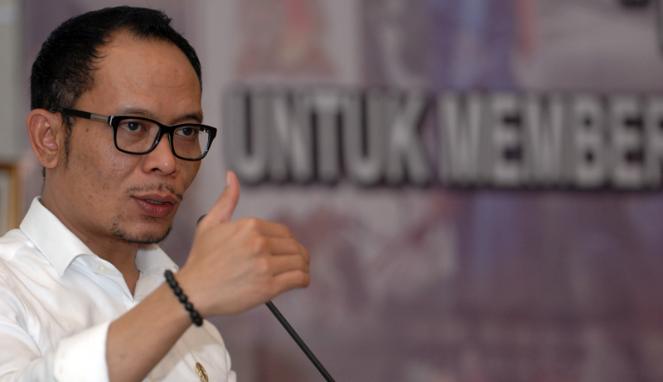 Jakarta, 4 Muharram 1437/17 October 2015 – The Indonesian government will apply three policies, including a new formula to ensure periodic salary hikes to improve workers living standards, Manpower Minister M Hanif Dhakiri has said.
Jakarta, 4 Muharram 1437/17 October 2015 – The Indonesian government will apply three policies, including a new formula to ensure periodic salary hikes to improve workers living standards, Manpower Minister M Hanif Dhakiri has said.
“The minimum wage policy, as per a formula that has been decided, is one of the policies to improve the living standards of workers and unemployed people. In essence, the state has adopted comprehensive policies which address not only wages but other issues as well,” he said at his office here on Friday, Antara News Agency quoted by Mi’raj Islamic News Agency (MINA) as reporting.
The other two policies deal with ways to improve social life and the development and supervision of social dialogs at bipartite forums within companies, he said.
He said the minimum wage policy which adopts a formula system will act as a safety net to ensure that workers/laborers do not fall prey to low wages.
“With this policy, workers will most likely see a salary hike every year at a measured rate,” he said.
Through the social policy, the government will strive to reduce the cost of living for the workers by issuing policies related to cheap education, social security, low-cost housing, mass transportation modes and low interest smallholder business credits.
“This policy ensures that the state will grant protection to workers, in particular, when it comes to living costs, as also to the public in general. With this policy, the living cost of workers can be kept down,” he said.
He said workers welfare was not merely dependent upon their wages but also the state backed social facilities which help in reducing the cost of living.
Also Read: Indonesia’s Hajj Ministry Engages Local MSMEs to Strengthen Catering for 2026 Pilgrims
The third policy deals with the development and supervision of bipartite dialogs between employers and employees, he said.
The bipartite social dialog is the key to improving the workers welfare by applying wage structure and deciding a scale as per which their wages are calculated, taking into account the period of work, post/class, education, competency, achievement and productivity.
“In this context, workers are responsible for improving their individual capacity and the role of labor unions in bipartite dialogs. Likewise, employers are responsible for creating room for dialogs without disbanding the labor unions (union busting) to ensure that bipartite forums can play an intensive and optimal role,” he said. (T/P010/R04)
Mi’raj Islamic News Agency (MINA)
Also Read: Indonesia Denies Being Destination for Forced Relocation of Gaza Residents

































 Mina Indonesia
Mina Indonesia Mina Arabic
Mina Arabic